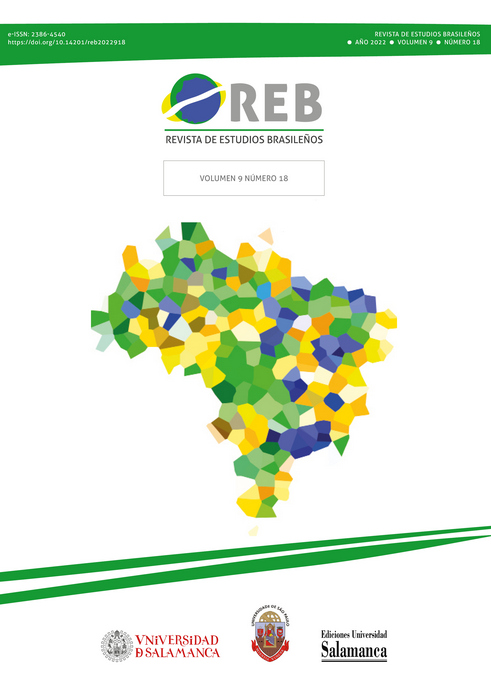Extension course - Spanish for Specific Purposes in the Supervised Internship in Emergency Remote Teaching: an experience report
DOI:
https://doi.org/10.14201/reb2022918169182Keywords:
Teaching Languages for Specific Purposes, Mandatory Supervised Internship, Spanish language teaching, emergency remote learningAbstract
The Teaching of Languages for Specific Purposes (TLSP), in this case the Spanish language, is still marked by myths that need to be deconstructed. This study aims to report the experience of two teachers of a Licentiate Degree in Languages-Spanish and their interns from the Supervised Internship III component in the development of a course entitled Extension Course - Spanish for Specific Purposes, in emergency remote teaching, demystifying conceptions about ELFE brought up by Augusto-Navarro (2008). Augusto-Navarro (2008), Guimarães (2014) and Ramos (2005) contribute to the discussion on teaching languages for specific purposes. About education and the formative process, we have the contribution of Fernandes (2019), Freire (1997), Gardner (2012), Imbernón (2017) and Pimenta (2012). The data present in the report were extracted from the Final Internship Reports and from the recordings of the meetings with the interns. In the discussion, we seek to reframe, within our context, 6 erroneous ideas about TLSP brought up by Augusto-Navarro (2008).
Downloads
References
Augusto-Navarro, E. H. (2008). Necessidades e Interesses Contemporâneos no Ensino-Aprendizagem de Inglês para Propósitos Específicos. In K. A. Silva, & M. L. O. Alvarez. Perspectivas de Investigação em LA. Campinas: Pontes.
Fernandes, M. N. (2019). Letramento em avaliação de professores em formação inicial em um curso de Letras Espanhol: uma pesquisa-ação. Dissertação de mestrado, Universidade de Brasília, Brasília, DF, Brasil. Recuperado em 15 outubro de 2021, de https://repositorio.unb.br/handle/10482/37251.
Freire, P. (1997). Pedagogia da Autonomia: saberes necessários à prática educativa (33a ed.). São Paulo: Paz e terra.
Gardner, R. C. (2006). Motivation and second language acquisition. Recuperado em 8 julho de 2012, de http://publish.uwo.ca/~gardner/docs/SPAINTALK.pdf.
Guimarães, R. M. (2014). O ensino de línguas para fins específicos (ELFE) no Brasil e no mundo: ontem e hoje. HELB, 8(8).
Imbernón, F. (2017). ¿Quiénes son los professores y professoras?. Ser docente en una sociedade compleja: la difícil tarea de enseñar (pp. 35-52). Barcelona: Graó.
Lei nº 9.394, de 20 de dezembro de 1996. Estabelece as diretrizes e bases da educação nacional. Brasília. 1996.
Pimenta, S. G. (Org.). (2012). Parte I: Professor: formação, identidade e trabalho docente. Saberes pedagógicos e atividade docente (8a ed., pp. 15-69). São Paulo: Cortez, 2012.
Ramos, R. C. G. (2005). Instrumental no Brasil: a desconstrução de mitos e a construção do futuro. In M. Freire, M. H. Vieira-Abrahão, & A. M. F. BARCELOS, A.M.F (Orgs). Linguística Aplicada e Contemporaneidade. Campinas: Pontes.
Resolução CNE/CP 2, de 19 de fevereiro de 2002. (2002). Institui a duração e a carga horária dos cursos de licenciatura, de graduação plena, de formação de professores da Educação Básica em nível superior. Brasília. 2002.
Downloads
Published
Issue
Section
License

This work is licensed under a Creative Commons Attribution-NonCommercial-NoDerivatives 4.0 International License.


